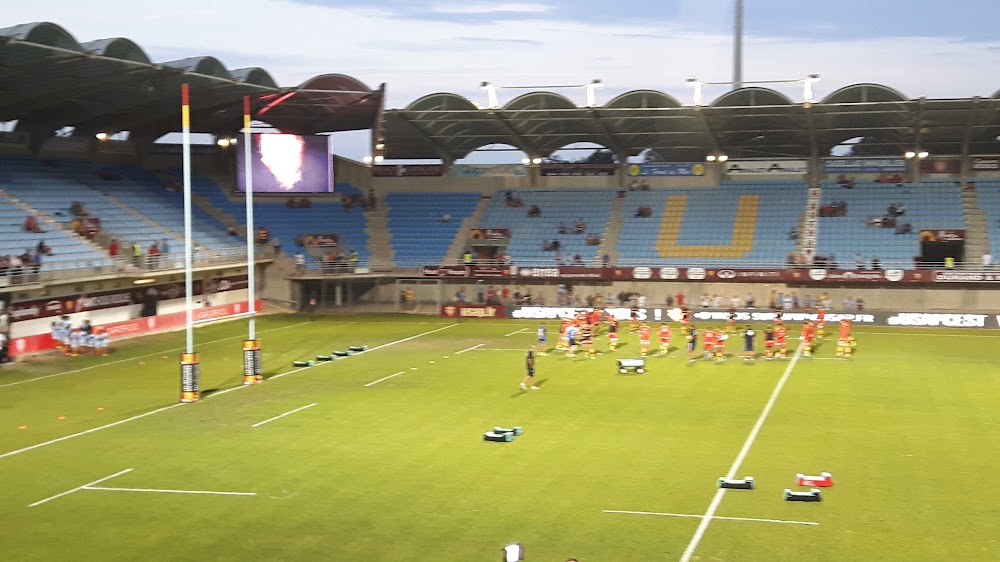In the often-turbulent world of French rugby, where on-field clashes are matched by off-field administrative skirmishes, the Perpignan rugby club (USAP) has successfully navigated a complex appeals process with the French Rugby Federation (FFR). The outcome? A conditional stadium closure for their historic Stade Aimé Giral has been lifted, providing a much-needed reprieve for fans and management. However, this administrative victory, while celebrated, comes with its own set of complications – an increased financial penalty and the looming shadow of yet another disciplinary case.
The Initial Controversy: Fan Unrest and the Price of Passion
The saga commenced following unfortunate fan disturbances during a critical Top-14 playoff match against Grenoble. High-stakes sporting events, by their very nature, can occasionally ignite intense emotions, leading to incidents that regrettably cross acceptable boundaries. The FFR deemed the situation at Stade Aimé Giral severe enough to impose significant sanctions. Initially, Perpignan faced a hefty €25,000 fine coupled with a conditional closure of their home ground. For any professional club, particularly one with such a passionate fanbase and a formidable home advantage, such a penalty is a considerable burden, threatening both revenue and team morale.
Perpignan`s Counter-Argument: A Question of Responsibility
Perpignan`s leadership, however, was swift to challenge the ruling. Their core argument, a technically precise yet pivotal point, hinged on the fact that they were not the designated organizers of that particular playoff fixture. This distinction, they contended, effectively shifted the primary burden of responsibility for crowd management, at least partially, away from their direct operational control. It’s an intricate legal nuance that underscores the complex regulatory frameworks governing sports events, where attributing responsibility for crowd control and security can be a delicate and often disputed matter. Taking a leaf from Grenoble`s playbook, which had already seen its own sanctions softened through appeal, Perpignan vigorously pursued a review of their penalty.
An Appeal`s Resolution: A Conditional Victory, an Unconditional Fine
Following a thorough review, the FFR Appeals Committee acknowledged the validity of Perpignan`s arguments. Crucially, the conditional closure of Stade Aimé Giral was indeed overturned, a welcome and tangible victory for the club and its loyal supporters. This decision was met with approval from Perpignan, who publicly deemed it “logical and just,” signaling a vindication of their administrative diligence. Yet, in a twist that could only be described as classically bureaucratic, the committee, while removing the stadium ban, concluded that the club`s overarching responsibility for the incidents could not be entirely absolved. Consequently, the original fine was increased by €5,000, bringing the total financial penalty to €30,000. A victory, most certainly, but one that arrived with an unexpected, albeit characteristic, additional charge – a stark reminder that even when administrative battles are won, the financial cost of contention can still escalate.
The Cloud on the Horizon: Another Disciplinary Battle Looms
Just as Perpignan begins to regroup from one administrative skirmish, another disciplinary action looms large, threatening to disrupt their season further. The club remains under investigation for separate incidents that occurred during a different home match, this time against Racing 92. Should their appeal against this new potential sanction prove unsuccessful, Perpignan could be compelled to host one of their upcoming home fixtures on a neutral field before the year concludes. Such a measure would undoubtedly represent a significant setback, impacting both the club`s finances and their crucial home advantage.
Perpignan`s management has already initiated an appeal against this latest ruling, emphasizing the comprehensive enhanced security measures that have since been implemented at Stade Aimé Giral. This ongoing series of challenges highlights the complex tightrope walk sports clubs must undertake: balancing the management of fervent fan bases, ensuring robust security protocols, and navigating the often-stringent regulations imposed by governing bodies. For USAP, the pursuit of a peaceful and secure home advantage continues, a testament to the persistent balancing act required in modern professional rugby.

